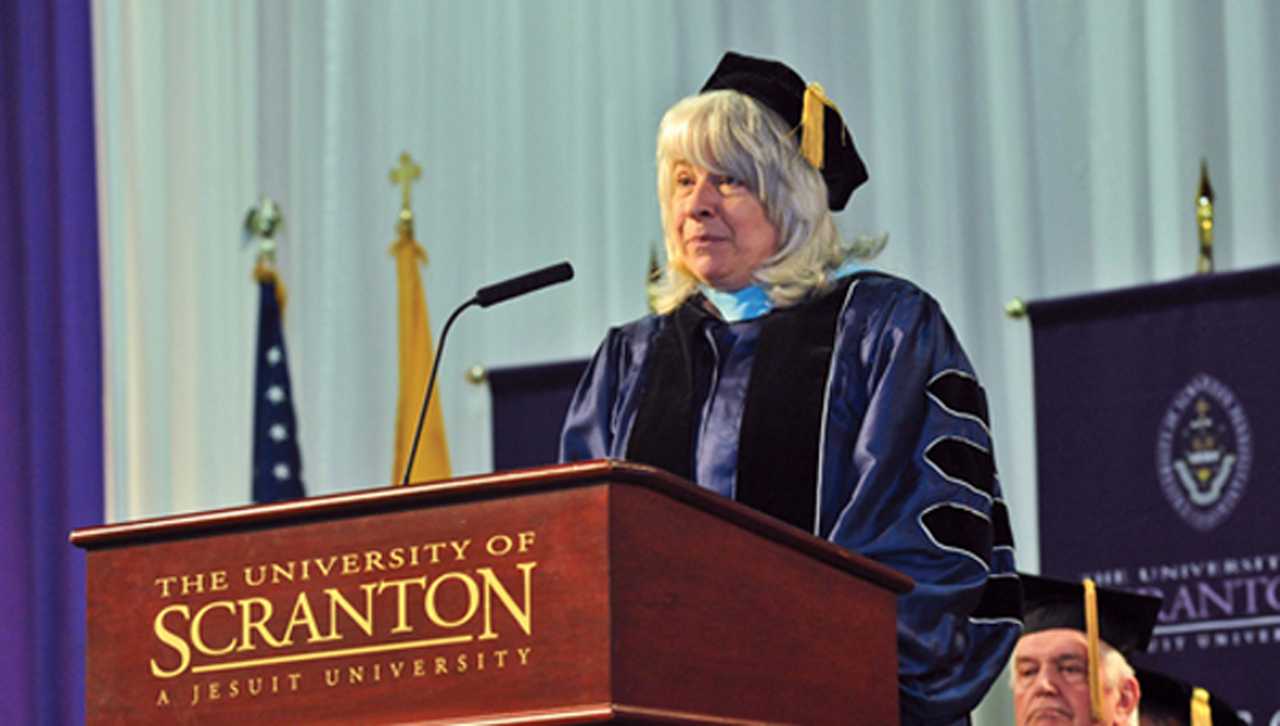Dr. Lori Bruch on Educational Assessment

This article originally appeared in the Office of Educational Assessment Spring 2019 Newsletter.
The OEA recently had the opportunity to speak with Dr. Lori Bruch, Department Chair, Counseling and Human Services (CHS). Lori shared with us the ways in which her department’s relationship with educational assessment has evolved over time, and the meaningful changes they have made because of it.
Because their programs are externally accredited, CHS faculty are no strangers to assessment. But it was, historically, not something embraced with great enthusiasm. Now, Lori explains, assessment has become meaningfully integrated into the daily work of their department, and has given their faculty a better understanding of what their students are learning.
A true collaboration
Lori describes their assessment as a collaborative experience, both within the department and in partnership with OEA.
Early on, they decided that no single person would be put “in charge” of the department’s assessment efforts (nor would one person be stuck with the bulk of the work). Everyone has ownership of the process. In this way, their approach to assessing student learning fosters a culture of teamwork and celebrates their colleagues’ varied strengths.
Lori noted the supportive relationship between their department and the Dean’s office and the OEA. She emphasized that changes in their assessment practices couldn’t have come from an external mandate. It had to come from within the department. But, she says, it wasn’t something they could achieve alone, either.
For example, OEA’s introduction of Via™ from Watermark helped cut down on the drudgery of manual data analysis. Because they no longer had to pore over vast amounts of data regarding student learning and key performance indicators, faculty could focus their efforts on what to do with the information they had. This provided some much-needed relief, saved time and energy, and boosted morale. Lori added that the sheer volume of the data on their students’ learning was such that, in the past, it was impossible to analyze all of it, much less use it for decision-making. Via allowed CHS to make use of all of the data available to them without having to “short cut” or work with a limited sample.
Closing the loop
Lori spoke to the ways CHS has used assessment data to improve teaching and learning in its programs. The department faculty have used the information they’ve gleaned from assessment to make changes at all levels, from program curricula to individual assignments.
Assessment led to a revamping of the curriculum for both the School Counseling and Rehabilitation Counseling programs, including everything from program learning outcomes, to course objectives and syllabi.
Faculty were also inspired to make changes to rubrics that are used to score individual assignments. Lori described a situation other faculty may find familiar: “We found the majority of our students had scored in the “exceeds expectations” range for a particular assignment. But was that accurate?” They rewrote their rubric to make clearer distinctions between “meets expectations” and “exceeds expectations,” allowing faculty to get a more accurate picture of where their students are.
Measurement that matters
Lori points to a handmade poster in her office. It is covered with the words “compassion” “consulting” “care” “communication,” and other words beginning with “C”. In the center, it says in large, bold letters, “It’s about the C’s, not the A’s.” Reflected here in the counseling department’s unofficial slogan is the notion that the outcomes they wish for their students are about much more than grades.
Likewise, their approach to assessment is about more than checking off a requirement. It is at the heart of why they do what they do.
Assessment has helped the counseling department to view its curriculum as a living document. It is the department’s philosophy that they must always be willing to reflect and evolve. Their discipline demands it. In order to help their students become the “counselors of tomorrow,” faculty must also be willing to learn, develop, and make changes based on new information.
Assessment has become a natural part of the department’s daily life. It is an integral part of their work as educators, not an isolated task. It is still a time-consuming commitment, she says, but it is time well spent.






